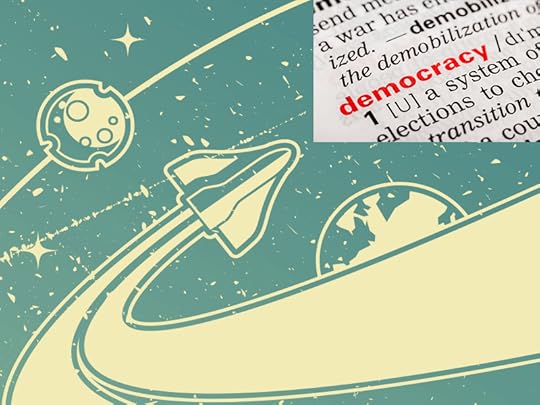S.K. Dunstall's Blog, page 31
August 27, 2016
Still on holiday
 Continuing the toilet theme from the other week … the toilet block at the camping ground near Edi cutting, on the King river.
Continuing the toilet theme from the other week … the toilet block at the camping ground near Edi cutting, on the King river.So we’re still on holiday, visiting our mother, who lives in North East Victoria. It’s lovely and green up there right now. (And pretty cold, too.) It’s beautiful.
 I think this was at Power’s lookout. Harry Power was a bushranger.
I think this was at Power’s lookout. Harry Power was a bushranger.In four to six months all that green will be brown. If there’s any grass left it will be tinder-dry. Or there won’t be any grass at all, and it will look more like this.
Brown dirt.
A quick lesson in Australianisms.
1) Bushrangers are (were) the equivalent of highwaymen in the UK, or an outlaw in the US. Think Dick Turpin or Jesse James. I don’t know what it’s like in the US or UK but bushrangers were (are) often looked on as folk heroes. Despite the fact that they robbed, and on occasion, killed people.
2) And while we’re talking Australianisms, what about a language lesson?
How do you pronounce Carraragarmungee? (It’s a real place. A friend of ours went to school there. There isn’t much more than the school, but …)
Kah-rah-rah-gah-mun-gee. Sound out the syllables. Then, speed it up. Say it at least three times as fast as you did sounding it out.
There, now you can pronounce it like a local.
August 20, 2016
Time out in Glenelg
 While Sherylyn is conferencing, I’m living the hard life. Writing a book, of course.
While Sherylyn is conferencing, I’m living the hard life. Writing a book, of course.We’re here in sunny Glenelg today. [At least, it’s sunnier now than it was when we arrived on Thursday, believe me.]
Sherylyn’s at the RWA conference, I’m here writing. It’s relaxing, and peaceful (for me, anyway). Especially since I have the next week off and I’m looking forward to relaxing, and seeing more family.
Glenelg is a beautiful place. Very touristy. I’d liken it to St Kilda in Melbourne, or Manly in Sydney. Or even parts of the Gold Coast, only nowhere near as warm. In summer, I imagine, it will be wall-to-wall people, but right now it’s pleasant. It’s got a buzz, it’s busy, but it’s not overcrowded.
August 13, 2016
History: what goes around comes around
 Roman public toilets, which apparently were a common place to do business and catch up. Although, according to one article I read, it wasn’t as great as it was made out to be.
Roman public toilets, which apparently were a common place to do business and catch up. Although, according to one article I read, it wasn’t as great as it was made out to be.Isn’t it funny how much ‘civilisation’ we lose, and continue to reinvent, time and time again.
Take plumbing and sanitation.
Stone age farmers in the Orkney Islands built drains under their houses and had toilets over the drains.
The Indus Valley civilisation in Asia (Afghanistan to Pakistan and northwest India) had a public water supply, covered sewers and an elaborate underground drainage system. Houses had their own private toilets.
Ancient Rome? They had running water, public baths, public toilets and sewers.
The Minoans of Ancient Crete used underground clay pipes for water supply and sanitation. They also had a version of a flush toilet.
Even the Mayans at Palenque had underground aqueducts and flush toilets. And they had household water filters, using limestone.
Pretty amazing, hey?
And then the middle ages happened. Wastewater collection seems to have consisted of open drains, that over time were covered. As for sanitation, that seemed to revert back to holes in the ground with a seat over them, or a seat over water, or pails that had to be emptied.
Until the modern flush toilet came along.
Now, it seems, we’re back to what they had in the past.
August 6, 2016
Star Trek Beyond
 Karl Urban as Bones and Zachary Quinto as Spock in Star Trek Beyone.
Karl Urban as Bones and Zachary Quinto as Spock in Star Trek Beyone.We’re in the middle of writing our next book. (And by middle, I mean middle. We’ve hovered between 68,000 and 70,000 words for two weeks now. Working hard, but the rewrites. 
July 30, 2016
Getting close to a book
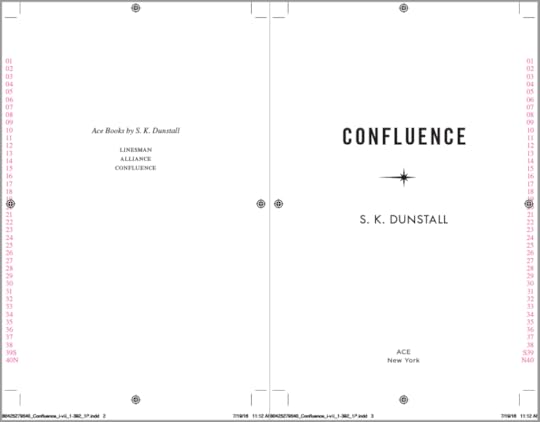 Look, it’s a typeset book, with crop marks and all. Just fyi, for Alliance, this is also the version we used to create the copy to read online. We’ll probably do the same for Confluence. Just need to get an okay to put it up.
Look, it’s a typeset book, with crop marks and all. Just fyi, for Alliance, this is also the version we used to create the copy to read online. We’ll probably do the same for Confluence. Just need to get an okay to put it up.The digital proofs for Confluence arrived the other day. This is a PDF of the typeset book.
It looks like a book. It’s the last stage before the books are actually printed. From this we get the green galleys—uncorrected proofs—that we can start sending out to people to read.
We do one final read. (Optional, according to the publisher, for they have someone doing the final read as well.) In our case, Sherylyn does the final read. She does nearly all the editing from the copy edits on. (It’s great to have two people with different skill-sets working on a book.)
You can’t change anything at this stage, only pick up errors.
Meantime, we have moved onto the next book, and there has been time between our last copy edit and this typeset document arriving, so this is the first read in a long time that we actually have some objectivity reading the book. Beforehand, we have been so immersed in the story we have no objectivity at all.
There are a few things we’d change. Clunky paragraphs here and there, repeated information. But overall, Sherylyn’s enjoying the read.
Which is nice.
July 23, 2016
Author, I can’t take it any more
I love your books. You are a great writer, and you have a book coming out soon. It’s part of a series I love.
Except … I’m not going to read it.
I know. I know. But you kill off too many of my favourite characters.
You even admit that you do it to wring emotion out of your readers.
But I’m over it. The last three books of yours I haven’t enjoyed. Instead of reading the story, I’ve been waiting for someone to die. Last book, I read the end first, to find out who you killed off this time. If the two characters you killed had been favourites of mine, I wouldn’t have read the book.
I know people die in real life, but books aren’t real life, and I read to escape, not get dragged through the emotional wringer every single time.
I know we’ve killed characters in our own books. But mostly we kill them early, and you don’t get to love them for a hundred thousand words—or in your case, over several hundred thousand words—before we bump them off.
Besides, I don’t mind the occasional death. Well, I do, but I accept that’s fictional life. And I cry buckets when it happens. But you create big books with ensemble casts, who I grow to love over the series (those who survive the first couple of books, anyway). Then you kill them off, one (or more) in each book. If you didn’t keep adding new people, you’d have run out of characters by now.
So I wish you all the best for the new release. But I’ll be over here in the other corner, reading a book that takes me away from the crazy world we live in for a while. Something that makes me feel better after I’ve finished. Not worse.
Regards
p.s. Did you know there’s a WikiHow article on getting over the death of a fictional character?
July 16, 2016
How do you pick trends in publishing?
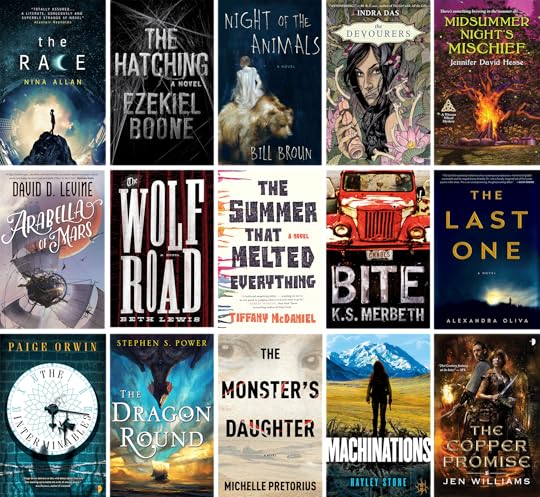 Debut authors for July 2016. (I borrowed the images from the Qwillery site, where they also have a monthly Cover Wars post, where you can vote for your favourite cover.) If I had to guess just by the covers, I’d say a bit of horror, and not too much science fiction.
Debut authors for July 2016. (I borrowed the images from the Qwillery site, where they also have a monthly Cover Wars post, where you can vote for your favourite cover.) If I had to guess just by the covers, I’d say a bit of horror, and not too much science fiction.Write what you know. Write for the market. Don’t write for the market. Write what’s hot right now. Don’t write what’s hot now, for it won’t be hot when you’re ready to sell.
Whether you choose to write for the market or against it, how do you pick what the market is doing?
The best piece of advice I ever got about working out what the market was doing, and it’s true for readers as well as writers, is to
Read debut authors from the last year, maybe two years.
If you’re a writer, it doesn’t help with what to write, but it does give you an idea of what’s happening in the market. If you’re a reader, it gives you a good idea of the way your genre is coming.
Why debut authors?
Because they’re the authors who don’t have any history behind them. They’re the ones the publishing houses are taking a chance on, the ones they think can sell.
So now we’ve established that it’s good to read debut authors, how do you know what’s coming?
Book publishers’ sites. Booksellers’ sites. Bloggers who blog about new and forthcoming books. My personal favourite site is The Qwillery. This lists all the debut releases for the month, and interviews many of the authors as well. I’ve found a lot of books there.
July 9, 2016
How long did it take to write Linesman?
Confluence, Linesman book three, has been with the with the copy editor a while now, and we’ve had time to sit back and reflect on some of the changes over the three books. One of the biggest changes was the time it took to write each book.
We kept a daily word count, so we know roughly how long it was from start to finish.
The diagram, below, shows the count for part of book two, Alliance.
 We use OneNote to store information about each book as we write it. Note the not-so-fanciful names. Usually named after someone or something in the story.
We use OneNote to store information about each book as we write it. Note the not-so-fanciful names. Usually named after someone or something in the story.Book one: Linesman
We had plenty of time to write Linesman, because we didn’t have a contract for it.
We started on 18 July, 2010
Finished the draft we sent to Caitlin, our agent, on 18 December, 2012
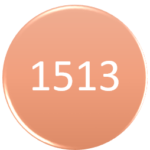
Rewrote again, and again, and our last count was on 7 September 2014
Grand total: Four years, one month and 21 days (1513 days)
Book two: Alliance
Alliance was the first book we wrote under contract. We had firm deadlines. But we also had another book to complete first, and in between writing it we went back and did edits on the earlier book.
We started on 16 February 2014

Finished the first draft on 7 December 2014
The last date counted in our calendar was 10 August 2015.
We’re getting faster, but the grand total is still one year, five months and 26 days (541 days)
Book three: Confluence
Book one, Linesman, was published while we were writing book three. And we were doing edits for book two. We also did more rewriting in the first draft of this story, rather than leaving it for later drafts.
We started on 1 February 2015
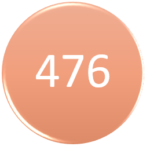
Finished the first draft on 26 January 2016
Final date counted was 21 May, 2016.
Grand total: One year, three months and 21 days (476 days)
This has been an interesting exercise, because if you’d asked me before I wrote this, I would have said it took us twelve months to write a book.
It used to. What’s changed has been the editing. Twelve months to write a book and get it halfway to decent. But more time to edit it into something that’s publishable.
July 3, 2016
Democracy in space
Compulsory voting
It seems that everyone is voting at the moment.
Britain with their Brexit. The US with their primaries and getting ready for an election later this year. And us, here in Australia. We had an election yesterday.
I vote. Everyone citizen over 18 years old votes in Australia votes. (Or at least, they’re supposed to.) Because, you see, voting in Australia is compulsory.
People from countries where voting is not compulsory think it weird. “What about your rights?” they say. “They’re denying you the democratic freedom to not vote if you choose to.”
I’m a fan of compulsory voting. The majority of Australians are. (Last I heard it was 70% in favour.) Sure, it takes an hour out of your day, but there’s usually a sausage sizzle happening, and the mother’s club at the schools (where most polling booths are) run a sweet stall.
It’s even easy to choose not to vote. Turn up, have your name ticked off, and then don’t fill in any of the boxes before you put the papers into the ballot box.
Democracy as governing body
I’m also a big fan of democracy. I think most of us who live in democratic countries are.
But democracies aren’t generally the first government of any country. They evolve, over time, when people become knowledgeable enough and powerful enough to force the incumbent government to listen to them.
It can go back the other way, too. An elected government can take away civil liberties, effectively removing democracy if it goes too far. Or the military take over.
Governing in space
Who’s going to make money in space?
Government agencies? Probably not. Governing bodies spend money, they don’t make it. They spend it services and infrastructure for their constituents. No matter what type of government they are. (By making money here, I mean actually getting something from space that will net them money.)
Thus the first people to make money in space will probably be companies. It follows, then, that the first peoples in space to be large enough to require any sort of government will be working for those companies.
Suppose a big, multi-national sets itself down on an asteroid and starts mining it. Whose laws are they bound by?
No-one’s but their own. So the first laws on that asteroid will be that company’s code of conduct. It may turn into a democracy eventually, but it’s a lot more likely to stay a ‘company’ for as long as the people are treated well enough and can survive.
The other big group I could see going into space is religious groups. Pilgrims, spreading the word of their god forever on or outward. Or escaping from persecution. For these people, the leaders of their church will become the ruling body.
Again, a fully-fledged democracy will be a long time coming.
June 25, 2016
A gender-swapped example
 I’ve been reading if We Wrote Men Like We Write Women and If We Wrote Men Like We Write Women Part II over at Jim C. Hines’ site.
I’ve been reading if We Wrote Men Like We Write Women and If We Wrote Men Like We Write Women Part II over at Jim C. Hines’ site.
He’s switching the the gender of the men and women in passages from various books. Robert Heinlen, Issac Asimov, Piers Anthony, Neal Stevenson and his own Libriomancer.
Interesting stuff.
Those of you who have been reading this blog a while might recall that we initially wrote Crown Princess Michelle, from the Linesman series, as a male. Early on, our agent suggested she would be stronger as a female. She was so right, and we cannot imagine Michelle as anything but a woman now.
There’s another book, a fantasy, we wrote a while back, where our agent did the same. “Have you considered making Edmund female?”
We’ve put this book aside. It’s fantasy, for a start, and right now we don’t have time to write any fantasy, we’re enjoying the science fiction. It also needs a lot of work. (Another suggestion was that we could turn it into a science fiction. That’s a lot more plausible, actually, because that would open the story massively for us. The world building would make a lot more sense.)
Edmund’s the main character in the book. We’re resisting. But then, I resisted changing Michelle at first. We do refer to the story as Edmunda now. So maybe we’re psyching ourselves into it.
Just for interest, here’s a gender-swapped passage from Edmunda. (This is an early draft, please excuse.)
The bath-house was full, so she went to the food-hall first.
She walked into the middle of a confrontation. Participants and onlookers alike glanced her way, took in the hair and the faded, crumpled uniform, and promptly ignored her.
The antagonist was a big, muscular woman as tall as Queen Hailie and twice as wide. She had two cronies who were almost as wide as she was, although considerably shorter. As Edmunda moved up the antagonist grabbed a handful of hair on a slender dark-haired woman who looked about as old as Hailie had been ten years ago. “We don’t like your type here.”
“Leave her alone,” a man watching said, and stepped forward to challenge her. He was the only one.
The two cronies grabbed him. “Let me go.” He kicked at one, hard.
Surely this wasn’t the standard of guard they had at headquarters nowadays.
Edmunda checked the room. There was one officer. Two stripes. She watched, doing nothing.
Edmunda helped herself to a slab of fresh bread from what was obviously the antagonist’s plate. “What is her type?” She pitched her voice to carry to the whole room.
She got everyone’s attention.
The bread was soft and chewy, and one end of it had soaked into the gravy on the plate. It tasted divine, and her stomach gurgled in anticipation of more.
“Mages,” the antagonist said.
Edmunda dipped more bread into the stew. The antagonist realised what she was doing. “Hey.”
“The guard welcomes mages,” Edmunda said. “What’s your name, guard?”
“Borga. And you’re eating my dinner.”
“I’ll tell you what we don’t welcome, Borga.” Edmunda’s voice carried to everyone in the now-silent room. “We don’t welcome bullies.”
Borga laughed, and tossed the hapless mage onto the long table. “Are you threatening me?”
“Not at all,” Edmunda said coolly, as Borga turned her full attention on her. “I’m stating facts. The guard does not discriminate. Against anyone,” and she looked at the silent faces watching her. “Understand.”
Some of them nodded. Some of them just waited for the beating they were sure she’d get.
Borga laughed and moved forward. Edmunda stayed where she was, although everyone else moved back.
She was slow for a big woman. She probably used brute strength most of the time. Edmunda had time to take another bite of bread as she brought up her night-stick.
Borga laughed. “As if that’s going to—”
Edmunda jabbed it hard into Borga’s throat. Borga went down with a gargle. She hit the floor so hard the plates on the tables jumped.
“If I’ve killed her,” Edmunda said to the nearest guard, “Organise a note of apology to her family.”
Yes, well. I don’t think it works as a straight gender swap. Somehow it’s not that believable any more. And it’s not Edmunda who’s the problem, but the soldiers fighting.
Here’s the original.
The bath-house was full, so he went to the food-hall first.
He walked into the middle of a confrontation. Participants and onlookers alike glanced his way, took in the hair and the faded, crumpled uniform, and promptly ignored him.
The antagonist was a big, muscular man as tall as King Harald and twice as wide. He had two cronies who were almost as wide as he was, although considerably shorter. As Edmund moved up the antagonist grabbed a handful of hair on a slender dark-haired youth who looked about as old as Harald had been ten years ago. “We don’t like your type here.”
“Leave him alone,” a woman watching said, and stepped forward to challenge him. She was the only one.
The two cronies grabbed her. “Let me go.” She kicked at one, hard.
Surely this wasn’t the standard of guard they had at headquarters nowadays.
Edmund checked the room. There was one officer. Two stripes. He watched, doing nothing.
Edmund helped himself to a slab of fresh bread from what was obviously the antagonist’s plate. “What is his type?” He pitched his voice to carry to the whole room.
He got everyone’s attention.
The bread was soft and chewy, and one end of it had soaked into the gravy on the plate. It tasted divine, and his stomach gurgled in anticipation of more.
“Mages,” the antagonist said.
Edmund dipped more bread into the stew. The antagonist realised what he was doing. “Hey.”
“The guard welcomes mages,” Edmund said. “What’s your name, guard?”
“Borg. And you’re eating my dinner.”
“I’ll tell you what we don’t welcome, Borg.” Edmund’s voice carried to everyone in the now-silent room. “We don’t welcome bullies.”
Borg laughed, and tossed the hapless mage onto the long table. “Are you threatening me?”
“Not at all,” Edmund said coolly, as Borg turned his full attention on him. “I’m stating facts. The guard does not discriminate. Against anyone,” and he looked at the silent faces watching him. “Understand.”
Some of them nodded. Some of them just waited for the beating they were sure he’d get.
Borg laughed and moved forward. Edmund stayed where he was, although everyone else moved back.
He was slow for a big man. He probably used brute strength most of the time. Edmund had time to take another bite of bread as he brought up his night-stick.
Borg laughed. “As if that’s going to—”
Edmund jabbed it hard into Borg’s throat. Borg went down with a gargle. He hit the floor so hard the plates on the tables jumped.
“If I’ve killed him,” Edmund said to the nearest guard, “Organise a note of apology to his family.”
Yes, it does need editing, but … it’s for demonstration purposes.
Even if you think your main character might be strong, what about the other characters around them? The interesting thing with the gender swap here is that in a supposedly-equal society, we’re way too man-heavy in the bullies. And the only woman in the whole scene was the person who spoke up. Stereotypes abound.



